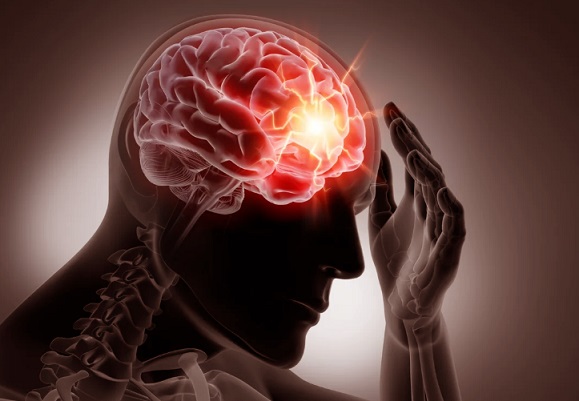Malaysian Scientists Find That SARS-CoV-2 Triggers Long Term Brain Damage Via Immune Chaos and Neuroinflammation
Nikhil Prasad Fact checked by:Thailand Medical News Team Jun 28, 2025 7 months, 3 weeks, 6 days, 1 hour, 26 minutes ago
Medical News: A major new study by researchers from SEGi University (Malaysia), Management and Science University (Malaysia), and Universiti Sultan Zainal Abidin (Malaysia) and Ajman University (United Arab Emirates), has uncovered alarming insights into how COVID-19 is leaving a lasting and destructive impact on the brain and nervous system long after the virus is gone. This
Medical News report reveals that the long-term neurological symptoms experienced by many COVID-19 survivors—often referred to as Long COVID—are likely driven by a combination of immune system dysfunction, persistent inflammation, and even autoimmune reactions against the brain.
 Malaysian Scientists Find That SARS-CoV-2 Triggers Long Term Brain Damage Via Immune Chaos
Malaysian Scientists Find That SARS-CoV-2 Triggers Long Term Brain Damage Via Immune Chaos
and Neuroinflammation
The research provides an in-depth explanation of how the SARS-CoV-2 virus acts like an immunological wrecking ball, damaging the delicate balance of the immune system and triggering processes that lead to ongoing brain inflammation and neurodegeneration. This is not limited to just brain fog or fatigue—many are developing serious issues like memory loss, nerve pain, anxiety, and even early signs of neurodegenerative diseases like Parkinson’s and Alzheimer’s.
Immune System Triggers a Chain Reaction of Brain Injury
According to the scientists, the virus doesn’t need to infect brain cells directly to do damage. Instead, it disrupts the immune system so profoundly that the body starts attacking its own tissues. One major finding is that COVID-19 causes a cytokine storm—a flood of inflammatory molecules like IL-6 and TNF-α—which breaks down the blood–brain barrier, the brain's natural shield. This opens the door for harmful immune cells and proteins to infiltrate the brain, leading to further inflammation.
Markers like glial fibrillary acidic protein (GFAP) and neurofilament light chain (NFL), which indicate damage to brain cells and glial activation, were found to be elevated in Long COVID patients, sometimes lasting over a year. Patients often showed microvascular damage, persistent glial cell inflammation, and autoimmune reactions where the immune system mistakenly attacks neurons and nerve coverings.
Long COVID Symptoms Tied to Multiple Immune Pathways
The study identified key neurological problems affecting Long COVID patients:
-Cognitive impairment (“brain fog”) tied to brain inflammation, microglial activation, and mitochondrial dysfunction
-Nerve pain and tingling linked to autoimmune reactions and damage to small nerve fibers
-Mood disorders including depression and anxiety due to cytokines disrupting neurotransmitter levels
-Postural orthostatic tachycardia syndrome (POTS) caused by autoimmune attacks on autonomic nerves
-Neurodegenerative-like syndromes, such as Park
insonism and dementia-like changes, likely sped up by chronic inflammation and glial cell activation
In addition, the virus’s spike protein appears to mimic certain human proteins, leading to the production of harmful autoantibodies that attack nerve cells, a process known as molecular mimicry.
Different Variants Have Different Impacts on the Brain
The researchers also discovered that different strains of the virus seem to affect the brain differently. Earlier variants like D614G and Delta had higher potential to enter the brain and directly damage brain tissues, while newer strains like Omicron are more likely to trigger indirect damage through inflammation without actual infection of brain cells. Still, even these indirect effects are serious—some patients with Omicron developed brain fog and nerve problems weeks after recovery.
Who Is Most at Risk and Why
The study highlights that older adults, people with autoimmune diseases, and even women—due to hormonal and immune differences—are more likely to develop Long COVID brain symptoms. Pre-existing conditions like diabetes, obesity, and cardiovascular disease worsen the risk due to already fragile blood vessels and chronic inflammation. In some people, pieces of the virus may even linger in the brain and immune cells for months, continuing to trigger immune attacks.
Hope for Diagnosis and Treatment
There’s hope in the form of advanced testing. Doctors could use biomarkers like IL-6, GFAP, NFL, and even brain scans to detect and monitor ongoing neurological damage. Treatments that target inflammation, like anti-IL-6 drugs, or that modulate immune function, such as IVIG and steroids, might help—but more trials are needed.
The study calls for personalized treatment plans based on patient immune profiles and the variant they were infected with. Researchers also stress the urgent need for follow-up care, especially for people showing memory loss or mood changes months after infection.
Conclusion
This groundbreaking review changes the way we view Long COVID. It is not just a lingering tiredness—it may be an active, ongoing neurological disorder caused by immune system chaos unleashed by SARS-CoV-2. With immune-driven brain inflammation, autoimmune attacks, and even signs of early neurodegeneration, the study warns of a potential wave of chronic brain illness following the pandemic. Ongoing monitoring, personalized therapies, and urgent research into immune-modulating treatments are now essential to protect millions from long-term disability.
The study findings were published in the peer reviewed International Journal of Molecular Sciences
https://www.mdpi.com/1422-0067/26/13/6214
For the latest COVID-19 News, keep on logging to Thailand
Medical News.
Read Also:
https://www.thailandmedical.news/news/researchers-warn-that-next-global-pandemic-could-possibly-involve-a-virus-that-targets-the-brain
https://www.thailandmedical.news/news/stop-treating-headaches-lightly-as-covid-19-can-cause-increased-intracranial-brain-pressure-which-can-be-dangerous
https://www.thailandmedical.news/news/folate-deficiency-aggravates-covid-19-impacts-on-brain-health
https://www.thailandmedical.news/articles/coronavirus
